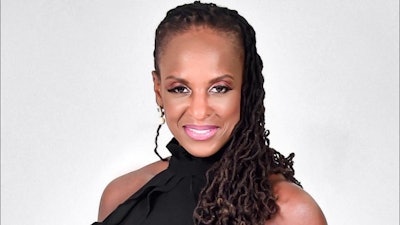A class-action lawsuit against Walden University, a private, for-profit, online institution has concluded with the school settling and agreeing to pay the plaintiffs $28.5 million, pending court approval. Dr. Aljanal Carroll
Dr. Aljanal Carroll
In the lawsuit – filed in Maryland in 2022 by national civil rights law firm Relman Colfax and the National Student Legal Defense Network – the plaintiffs claimed that Walden engaged in false advertising and misrepresentations about the costs and duration of its Doctorate in Business Administration (DBA) program, one of its many doctoral offerings.
Specifically, the school was alleged to have prolonged how long it would take for students to complete the second phase of the program, a final “capstone” research and writing project. Because the school took extended amounts of time to review students’ work during the “capstone courses,” students were effectively made to continue enrolling in these courses long past the expected timeframe for degree completion, paying tuition all the while. To stop was to leave with debt but no degree.
In the case of Dr. Aljanal Carroll, a named plaintiff, what was advertised as an academic pursuit that was supposed to take one and a half years ended up taking three, she told Diverse. She started the program in September 2017 and finished in October 2020.
"It kept going and going and going,” said Carroll, an adjunct professor at Columbia International University. “We would submit our work, and it got sent back for periods, commas, and little stuff like that that just made you very discouraged, frustrated. It was little stuff like that that just made it difficult for us. But we did not quit. We were already too late in the game to stop or go somewhere else. So we kept going."
Her capstone dissertation was sent back to her by Walden’s review committee about 12-14 times, she said. And because she had already finished her coursework in the first phase of the program, all she could do was wait during this review process.
Carroll was supposed to enroll in five of these capstone courses, each lasting eight to 11 weeks and costing $2,400-$2,600. She ended up having to take 12, she said.
Walden was alleged to have been targeting Black and female students with this strategy, given that approximately 41% of the school’s doctoral student body is Black and about 77% are female, both disproportionately higher than nationwide rates, according to the suit.
The lawsuit claims that the school did so by spending most of its advertising budget on markets with higher-than-average Black populations and targeting disproportionately Black and disproportionately female groups, such as students who are working while in school, have children, or are over 30.
Plaintiffs alleged that these practices constituted racial and gender discrimination and violated not only consumer protection laws, but also the Equal Credit Opportunity Act and Title VI of the Civil Rights Act of 1964. The latter stipulates that people cannot be excluded from or discriminated against in a program receiving federal financial assistance because of their race, color, or nationality.
Notably, U.S. District Judge Julie Rubin’s denial of Walden’s motion to dismiss earlier in the case’s lifespan had been legally significant, said Tara Ramchandani, a partner at Relman Colfax and one of the plaintiff’s attorneys.
“It's an incredibly important opinion, because it was the first in the country that we're aware of that affirmed a reverse red-lining theory in the education context,” Ramchandani said. “Reverse redlining [there was that] we alleged Walden was pushing harmful practices to women and Black students. It's the targeting of protected classes with a bad product.”
The federal Consumer Financial Protection Bureau has since relied on this theory for subsequent filings in different cases, she added.
Victims of this alleged scheme have been overcharged more than $28.5 million, according to the lawsuit. According to the settlement – which was completed last week and filed March 28 after months of negotiations – about 2,300 people could get relief, Ramchandani said.
The class of people included in this case are all Black students who were enrolled in Walden’s DBA program from 2007 to 2017 and all female students enrolled in the program in the same time period who had received student loans, according to Ramchandani.
“In pursuit of the best interests of all parties involved, Walden University has reached a settlement agreement with the plaintiffs in the Carroll v. Walden lawsuit pending court approval, a motion for which was filed in court on Thursday, March 28,” an email statement from Walden read. “We remain steadfast in our commitment to provide opportunity and support to a diverse community of career professionals and expand access to education to underserved communities – helping many students achieve professional ambitions that once seemed out of reach.”
Walden has already removed the University Research Reviewer (URR) role from its dissertation committees and will keep it that way for at least four years, according to Relman Colfax. The settlement also asks Walden to be more transparent publicly about the program’s outcomes.
"At the heart of our case and our allegations is that Walden knew that it was taking students longer to complete the DBA program than they were advertising to students,” Ramchandani said. “And so, Walden has committed to updating and making more explicit the median time to completion and median cost for students in the program.
“That will be disclosed on their website so that, when students are thinking and considering their options for higher education, they're getting a much more complete picture of what the true cost and time might be from Walden.”















